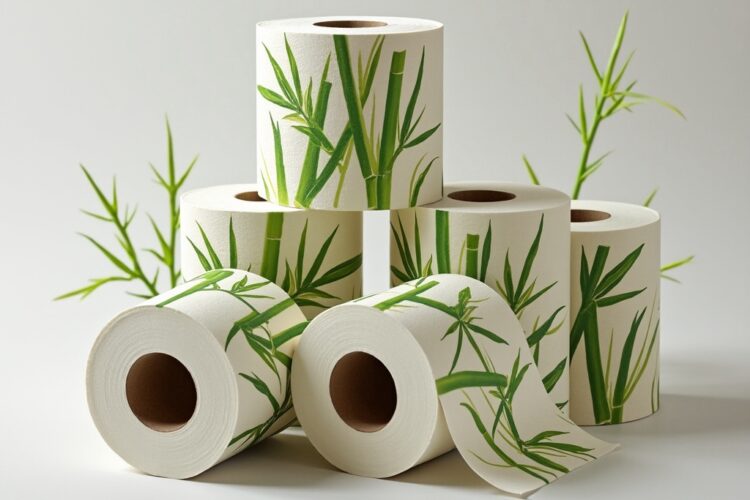Organic bamboo toilet paper is healthier than regular white toilet paper due to its production without harsh chemicals like chlorine, formaldehyde, and synthetic fragrances, which can cause health issues. Bamboo’s rapid growth without pesticides means fewer toxins, making it hypoallergenic and gentle on skin. It also supports environmental health by reducing deforestation, thus offering a safer, more sustainable option for personal use, minimizing exposure to dioxins and other harmful substances.
Long Version
When comparing organic bamboo toilet paper to regular white toilet paper in terms of health benefits, several key factors come into play. Organic bamboo toilet paper stands out primarily because bamboo, as a raw material, grows rapidly without the need for pesticides or fertilizers, reducing the chemical load from the outset. This type of toilet paper is typically manufactured without harsh chemicals like chlorine bleach, which is often used in traditional toilet paper production to whiten the pulp, thereby avoiding the release of dioxins, a group of highly toxic chemicals. Dioxins are known for their bioaccumulative properties, potentially leading to a variety of health issues including cancer, hormonal disruptions, and reproductive problems over time. Moreover, bamboo toilet paper often avoids the use of formaldehyde, another common additive in regular toilet paper for strength and water resistance, which has been classified as a known human carcinogen.
Furthermore, bamboo products tend to be hypoallergenic, making them gentler on sensitive skin and reducing the risk of allergic reactions or irritations which might occur with chemically treated papers. The absence of synthetic fragrances and dyes in organic bamboo variants also contributes to its health benefits, as these additives in regular toilet paper can lead to skin irritation or more severe allergic reactions in some individuals. From an environmental health perspective, bamboo’s sustainability means less deforestation, preserving ecosystems that play a crucial role in public health through air purification, water filtration, and biodiversity.
On the flip side, regular white toilet paper, especially those varieties made from recycled content, might still involve less chemical bleaching than virgin pulp products but can sometimes retain residual chemicals from their original sources or the recycling process itself. However, advancements in recycling technologies aim to minimize these, yet they might not eliminate all health concerns, particularly regarding the potential for BPA (Bisphenol A) presence, which has been linked to various health issues including hormonal imbalances.
In summary, while regular white toilet paper has become safer and more eco-friendly over the years, organic bamboo toilet paper generally offers superior health benefits due to its natural composition, minimal processing without harsh chemicals, and hypoallergenic properties. This makes it a preferable choice for individuals looking to reduce their exposure to potentially harmful substances, enhance skin health, and support environmental sustainability, all of which indirectly contribute to broader public health outcomes.






